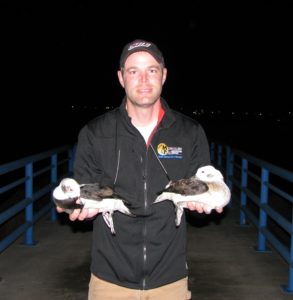A Brief Introduction to Hunter Surveys
By U.S. Geological Survey Biologist Luke Fara

This article originally appeared in Wisconsin Waterfowl Association’s June 2020 Open Water Newsletter edition.
Gathering opinions and information from stakeholders is a critical component to maintaining healthy wildlife populations. The importance of social information associated to successful waterfowl management has been outlined in both the North American Waterfowl Management Plan and the Wisconsin Waterfowl Management Plan. Information collected from waterfowl hunters in Wisconsin has already been used to guide and inform important management decisions within the state. Most recently, surveys of Wisconsin waterfowl hunters have led to the changing of the Wisconsin waterfowl hunting zones and the newly established Lake Michigan and Green Bay open water zone (hereafter Open Water zone) and the elimination of the Mississippi River zone.
Effectively assessing hunter satisfaction and their opinions of the Open Water zone is logistically challenging compared to methods used under the previous zone structure. Because those former protocols cannot be applied to the Open Water zone, the U.S. Geological Survey has teamed up with the University of Wisconsin at Stevens Point to conduct in-person hunter surveys at boat launches around the Wisconsin waters of Lake Michigan and Green Bay during the 2020 duck hunting season. The in-person survey will supply important information to waterfowl managers as they determine the season structure for the Open Water zone for 2021 and species harvest estimates in that zone during 2020. Additionally, this survey will build upon previous work that I conducted as part of my thesis and provide managers with details on what environmental factors (such as wave height, wind speed, wind direction, temperature, precipitation, and others) impact hunter participation on these open waters.
A Call for Volunteers
Partnering with Dr. Ben Sedinger and his students from the University of Wisconsin – Stevens Point, we will sample boat launches along the shoreline of Green Bay and Lake Michigan. Unfortunately, students will be limited by their class schedule and we anticipate that most of their assistance will occur on weekends. Thus, we are asking for additional volunteers to support this important effort by surveying boat launches, especially on weekdays. In addition, we are looking for lodging options to support traveling volunteers. Ideally, we are seeking lodging near Green Bay to allow easy travel to Lake Michigan and the shorelines surrounding Green Bay. In the end, the number of launches that we can survey, and by default the number of hunters we can communicate with, will be limited by volunteer support and lodging options. Please contact me at [email]lfara@usgs.gov[/email] if you are interested in volunteering to conduct surveys, if you know of lodging options near the Green Bay area, or if you would like more information regarding this project.
A Call for Hunter Support
We ask that all hunters assist us with this project through their patience and willingness to complete the surveys when approached, as some volunteers may have little to no experience in administering hunter surveys or with the application of survey data to waterfowl management. Lastly, know that we are conducting this survey to relay your thoughts and opinions to waterfowl managers and appreciate the input that you will provide. We look forward to interacting with you this fall if you are hunting these areas and want to thank you in advance for your support.
